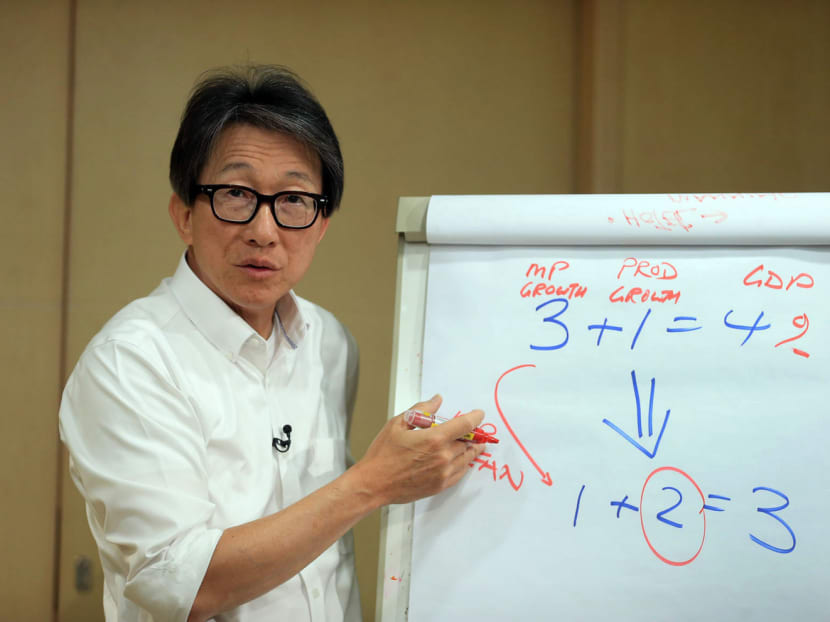No U-turn on foreign manpower policy: Swee Say
SINGAPORE — About a month into his new role, Manpower Minister Lim Swee Say has had to fend off requests from businesses to relook the Government’s foreign manpower policy. But he made it clear yesterday that it will not waver on its position, and companies ought to stop clinging on to the forlorn hope that there would be a U-turn.

Minister for Manpower Lim Swee Say speaks during a media session on June 2, 2015. Photo: Wee Teck Hian
SINGAPORE — About a month into his new role, Manpower Minister Lim Swee Say has had to fend off requests from businesses to relook the Government’s foreign manpower policy. But he made it clear yesterday that it will not waver on its position, and companies ought to stop clinging on to the forlorn hope that there would be a U-turn.
“I keep explaining (to businesses) that if they keep hoping that the Ministry of Manpower (MOM) can revisit our policies on foreign workers ... to give higher quota — that’s not possible. We’ve reached the point of no return,” said Mr Lim. “Please don’t keep asking me to relax our foreign worker policy. That’s not part of the outcome.”
Giving a group interview yesterday, Mr Lim, who was appointed as Manpower Minister on May 4 having previously led the labour movement, outlined four priorities under his watch: Becoming more manpower lean, building a strong Singaporean core, ensuring the foreign workforce is of good quality and maintaining Singapore’s competitiveness. The Fair Consideration Framework and national jobs bank will also be reviewed, he said, without elaborating. The framework requires employers with businesses of more than 25 people to post job vacancies for at least 14 days before applying for an Employment Pass.
Mr Lim stressed that quality foreign labour will take precedence over quantity. Citing the example of multinational corporations intending to base their operations here, he said that these firms face the challenge of finding enough expertise and experience among the local workforce.
“So therefore, they’re asking (if they can) bring this expertise and experience not available in Singapore here. My answer is yes — provided there’s a commitment to localise expertise over time. In other words, transfer the know-how,” he said.
Mr Lim noted that Singapore’s educational system is geared towards producing workers with stellar qualifications. However, the services and manufacturing industries remain labour-intensive and have low value-add. Failing to cut back on manpower needs in these sectors could result in highly-qualified professionals, managers and executives (PMEs) having to settle for jobs that are below their full potential and these workers would end up being underemployed, Mr Lim said.
Good long-term career prospects for a strong Singaporean core, coupled with a quality foreign workforce, would render the Singapore economy more competitive, he added.
In his final interview as labour chief, Mr Lim said in April that if workers do not pick skills for the future and businesses did not transform existing jobs quickly enough, Singapore could suffer dire employment outcomes.
Yesterday, Mr Lim reiterated that companies have to be proactive at the industry and sub-industry levels. “All it takes is three companies, five companies, seven companies that are prepared to take the lead,” he said.
Mr Lim said he has encouraged businesses to identify best practices around the world and work with his ministry to instil these practices in Singapore “in the shortest possible time”. The Singapore National Employers Federation (SNEF), for example, is keen to work with the MOM on internships, professional development and jobs redesign in the private sector.
He acknowledged the businesses’ concerns on how they could respond to external competition given the manpower constraints. But he called on businesses to look beyond the current tight labour market and work with the Government and unions. “The MOM on our own will not be enough to make it happen ... If we work together, we believe a lot more can be done in a much faster way,” he said.






